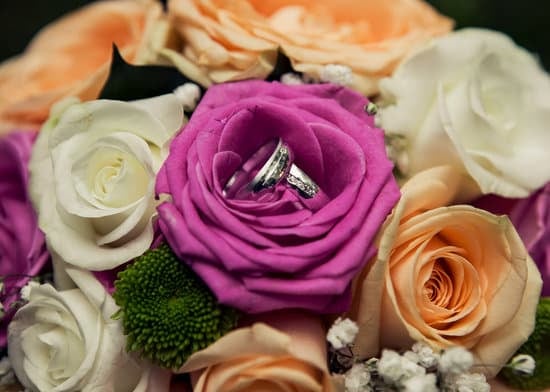White weddings hold a significant meaning in various cultures around the world. The color white is traditionally associated with purity, innocence, and new beginnings, making it a popular choice for wedding attire. In this article, we will delve into the rich history and symbolism behind white weddings, exploring their cultural importance and deeper significance.
The tradition of wearing white on your wedding day can be traced back to ancient times, symbolizing the purity and innocence of the bride as she enters into marriage. Over the centuries, white weddings have evolved to encompass a range of customs and traditions, each carrying its own unique meaning. From the white wedding dress to the décor and flowers, every element plays a part in creating a special and meaningful celebration.
As we explore the origins and evolution of white weddings, we will also examine how different cultures interpret the color white within the context of marriage. Whether it be through religious symbolism or personal beliefs, the significance of white weddings extends far beyond just fashion choices. Join us on this journey to uncover the timeless allure and deep-rooted meanings behind one of life’s most cherished celebrations.
History of White Weddings
White weddings have long been a significant cultural tradition, with the white wedding dress as a focal point of the ceremony. The history of white weddings dates back to Victorian times when Queen Victoria wore a white gown for her wedding to Prince Albert in 1840. This royal wedding set off a trend that would endure for centuries, solidifying the white wedding dress as a symbol of purity and innocence.
The evolution of white weddings has seen changes in trends and styles over time, but the symbolism behind the white dress remains consistent. The color white is often associated with purity, new beginnings, and innocence, making it a fitting choice for brides on their special day. In many cultures, wearing white on one’s wedding day is believed to ward off evil spirits and bring good luck to the couple.
In modern times, the concept of a white wedding meaning has expanded to encompass personal interpretations and cultural influences. While some couples choose to adhere to traditional customs, others opt for non-traditional approaches that reflect their individuality. Despite these variations, the significance of wearing white on one’s wedding day continues to hold deep meaning for many couples around the world.
Evolution of White Weddings
White weddings have evolved over time, with changes in traditions and cultural practices adding depth to the significance of this special occasion. The history of white weddings dates back to the Victorian era when Queen Victoria wore a white gown for her wedding to Prince Albert in 1840.
This royal choice set a new trend for brides across Europe and eventually in other parts of the world. White was not always associated with purity and innocence in weddings before this royal event.
Changing Traditions
From elaborate ceremonies to intimate celebrations, white weddings have adapted to changing societal norms and preferences. While traditional white weddings may have followed a specific set of customs, modern couples are incorporating their own personal touches to make their big day unique. This evolution includes everything from non-traditional venues to customized vows, reflecting the shift towards individualism and creativity in contemporary wedding planning.
Global Influence
Across different cultures, white weddings vary in rituals and symbolism, showcasing the diverse interpretations of this special occasion. In Western cultures, white is often associated with purity and new beginnings, while in some Eastern traditions, it symbolizes mourning or spiritual significance.
Understanding how various cultures perceive the color white can provide insight into the complex meanings attached to weddings worldwide. As globalization continues to influence wedding trends, multicultural celebrations are becoming more common, blending elements from different traditions to create meaningful and inclusive ceremonies.
Psychological Meaning of White
White has long been associated with purity, innocence, and new beginnings. In the context of weddings, the color white takes on a significant role in symbolizing the start of a new chapter in life.
The white wedding dress, which is a staple in Western cultures, is a representation of the bride’s purity and the beginning of her journey into marriage. This tradition dates back to Queen Victoria’s wedding to Prince Albert in 1840 when she wore a white gown, setting a trend that continues to this day.
The psychological meaning of white in weddings goes beyond just purity and innocence. White also represents clarity, simplicity, and unity. It signifies a fresh start for the couple as they embark on their married life together. The clean and pristine appearance of white creates a sense of peace and harmony, setting the tone for a joyous celebration of love and commitment.
In addition to its psychological symbolism, the color white plays a practical role in weddings as well. White is traditionally associated with weddings because it symbolizes cleanliness and perfection. It reflects light and can make spaces appear larger and more elegant.
From white wedding gowns to white flower arrangements and decor, this color choice creates a sense of unity and cohesion throughout the celebration. Overall, the color white holds deep-rooted meanings that go beyond aesthetics, making it an integral part of wedding traditions across cultures.
White Wedding Traditions
White weddings are steeped in tradition, with numerous rituals and customs that have been passed down through generations. One of the most iconic white wedding traditions is the wearing of a white wedding dress by the bride.
The white wedding dress has been a symbol of purity, innocence, and new beginnings in Western cultures since the mid-19th century when Queen Victoria wore a white gown for her own nuptials. This tradition has since spread around the world, influencing bridal fashion across different cultures.
In addition to the white wedding dress, there are several other common white wedding traditions that hold special meanings. The exchange of wedding rings is a universal symbol of love and commitment, with the circular shape representing eternity.
The cutting of the wedding cake is another time-honored tradition dating back to ancient Rome, symbolizing fertility and prosperity for the newlyweds. The tossing of the bridal bouquet is a fun tradition where single women gather to catch it, with the belief that whoever catches it will be the next to marry.
Furthermore, some white wedding traditions have specific cultural or regional significances. For example, in many Asian cultures, such as Chinese or Indian weddings, white represents mourning and is therefore not typically worn by brides. Instead, red is the traditional color for brides in these cultures symbolizing good luck and prosperity. Understanding these various white wedding traditions and their meanings adds depth and richness to the overall celebration of love and union between two individuals.
| White Wedding Tradition | Meaning |
|---|---|
| Wearing a White Wedding Dress | Symbolizes purity, innocence, and new beginnings |
| Exchange of Wedding Rings | Represents love and commitment |
| Cutting of the Wedding Cake | Symbolizes fertility and prosperity |
Religious Symbolism
Christianity
In Christianity, white weddings hold a significant religious symbolism. The color white is often associated with purity, innocence, and new beginnings, which align with the values upheld in Christian teachings. The white dress worn by brides symbolizes their commitment to a life of purity and fidelity in marriage. Additionally, the use of white flowers and decorations in churches symbolize the spiritual purity and divine blessing of the union.
Hinduism
In Hindu weddings, the color white also holds a special religious significance. While red is traditionally the color of choice for brides in Hindu ceremonies, wearing a white saree or incorporating white elements into the attire symbolizes purity, cleanliness, and spirituality. White flowers such as jasmine are often used in Hindu wedding ceremonies to signify auspiciousness and purity.
Islam
White weddings in Islam emphasize modesty, simplicity, and purity. While Islamic weddings do not have strict rules regarding dress colors for brides, wearing a white hijab or incorporating white accents into the bridal outfit signifies humility and modesty before Allah. White is also often used in Islamic wedding decor to symbolize peace, tranquility, and blessings upon the marital union.
Overall, across different faiths, the use of white in wedding ceremonies carries a deep religious significance that reflects spiritual values such as purity, commitment, and blessings for the newlyweds. This universal symbolism of white weddings showcases how traditions rooted in religious beliefs continue to influence modern wedding customs worldwide.
Modern Interpretations
White weddings have evolved over time to encompass a wide range of cultural, personal, and symbolic meanings. In modern times, the white wedding has come to symbolize purity, elegance, and simplicity. While the traditional white wedding may have originated from historical customs and religious beliefs, contemporary interpretations have given new depth and meaning to this age-old tradition. Here are some modern interpretations of white weddings and their significance:
- Individuality: White weddings today are often seen as a way for couples to express their individuality while still honoring tradition. Brides and grooms may choose to incorporate unique elements into their wedding attire or decor that reflect their personalities and values.
- Minimalism: The color white is often associated with minimalism and simplicity. Modern couples may opt for a white wedding theme to create a clean, timeless aesthetic that focuses on the beauty of the moment rather than extravagant details.
- Spiritual Meaning: For many couples, the color white holds spiritual significance beyond its traditional associations with purity. It can symbolize unity, light, and transcendence in a marriage ceremony, signifying the couple’s commitment to each other and their shared values.
In today’s society, the white wedding meaning goes beyond just a color choice for attire or decor – it represents a deeper connection to tradition, symbolism, and personal expression. Whether couples choose to embrace the classic symbolism of purity or infuse their own unique meanings into their white weddings, the tradition continues to hold significant value in modern weddings around the world.
Conclusion
In conclusion, the white wedding meaning holds a deep and complex significance in today’s society. From its origins as a symbol of purity and innocence to its evolution as a cultural tradition, white weddings continue to be cherished and celebrated around the world. The history of white weddings dates back centuries, with the white wedding dress becoming a timeless and iconic symbol of love and commitment.
As we have seen, the color white plays a fundamental role in weddings, representing new beginnings, unity, and the promise of a fresh start. The psychological meaning of white in weddings is powerful, evoking feelings of peace, simplicity, and clarity as couples embark on their journey together. White wedding traditions also hold special meanings, from exchanging vows to wearing something old, new, borrowed, and blue – each element adding layers of symbolism to the celebration.
Moreover, the religious symbolism attached to white weddings further enriches their significance for many couples. In various faiths, the color white signifies purity of heart and soul, as well as the sacred union between spouses. Even in modern times, contemporary interpretations of white weddings continue to evolve but one thing remains constant – the enduring beauty and meaning behind exchanging vows in a ceremony that celebrates love in all its purest form.
Frequently Asked Questions
What Is the Meaning of White Marriage?
White marriage typically refers to a marriage that is conducted in accordance with Western cultural norms and traditions. This often involves a white wedding dress for the bride, formal attire for the groom, and certain customs like exchanging vows and rings.
What Is the Meaning Behind White Wedding by Billy Idol?
“White Wedding” by Billy Idol is a song that was released in 1982 and became one of his most popular hits. The lyrics of the song depict a rebellious attitude towards societal conventions around marriage, with themes of rebellion, personal freedom, and individualism.
What Is the Difference Between a White Wedding and a Traditional Wedding?
The main difference between a white wedding and a traditional wedding lies in cultural influences and location. White weddings are typically associated with Western cultures and may include specific customs like wearing bridal gowns or formal suits.
Traditional weddings, on the other hand, vary greatly depending on each culture’s customs, rituals, clothing choices, and ceremonies to represent their unique traditions.

I have been involved in marriages for over 20 years helping couples and singles understand more about them.





